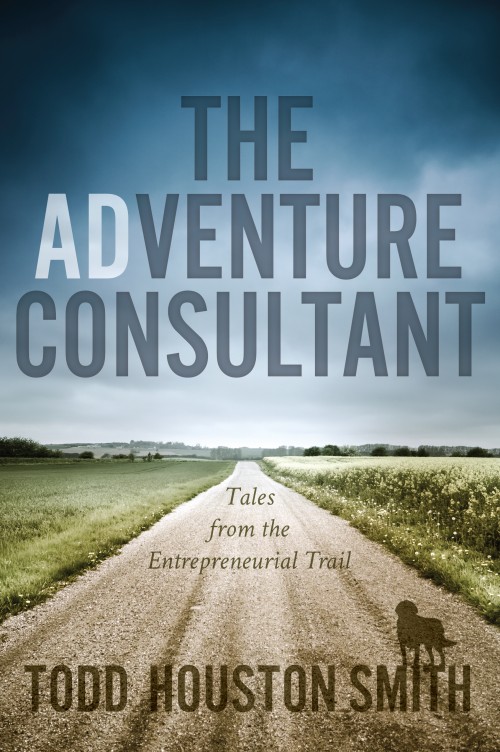Crowdfunding Conference Review
by Todd Smith | Oct 15, 2012 | raising capital, Crowdfunding, Blog, Business Plan
Greetings!
I just got back from last week's first ever equity crowdfunding conference, held in Las Vegas. Blue Horizon Venture Consulting was a sponsor and had a table at the event, where we discussed our business plan, financial modeling, investor presentation, and capital raising services with potential business partners and clients.
It was a tremendous event, led by many of the people who have helped to craft and lobby for the JOBS Act legislation that will soon make equity crowdfunding, or "the democratization of capital", legal.
I wanted to share what I learned at the event so that you'll have some expectations as we round the bend for the home stretch in 2012.
Here are my key findings/thoughts from the event:
1) What is Equity Crowdfunding? - Equity Crowdfunding allows for several things. First is solicitation. Advertising any sort of investment has always been a big no no. The JOBS Act is going to relax the rules on general solicitation - first, to accredited investors, and eventually to non-accredited investors. Secondly, you'll be able to raise up to $1 million (and this number may change) via an approved crowdfunding platform such as Arctic Island, Crowdfunder, or Early Shares, leveraging the value of your social networks.
2) Where Does CrowdFunding Stand Today? - The SEC has been dragging its feet regarding implementing the rules and regulations for Crowdfunding. Of course, their main charge is to protect Grandma or Granpa from losing their $2000 to a weasely snake oil salesman. And the SEC fears the Internet, plain and simple. So these are sort of the old school mental hurdles that need to be overcome to enact this legislation. Keep in mind, the Securities Act of 1933 hasn't changed in nearly 80 years, so there is a lot of entrenched thinking that needs to be modernized. This is no small task. The deadline for the SEC to enact these rules, as set by Congress, is 12/31/12, but based on deadlines already missed, it appears that this is highly unlikely to be a deadline met. The people involved had differing opinions as to when it will be enacted, but the "Vegas Odds" that seemed to evolve from numerous conversations, sort of has the over/under around midyear 2013. There may be some baby steps along the way, such as relaxing general solicitation rules, and allowing equity crowdfunding to accredited investors, but opening it up to all investors is still perhaps nine months away.
3) What Are the Likely Requirements Going to Be? - The short/long answer to this is that the requirements are likely to be fairly prohibitive, sadly. There seem to be three tiers that have been established: 1) Less than $100K, which has the fewest requirements; 2) $100-$500K, which has moderate requirements, and; 3) $500K to $1 million, which is going to have the most requirements. The core requirements are likely going to include: tax returns, financial statements (CEO certified, CPA reviewed, or CPA audited depending on how much you intend to raise), a valuation explaining how you arrived at your share price, a detailed use of proceeds, the total amount you are raising (and it is an all or nothing proposition - if you don't raise the entire amount, you don't get any of it), and additional business plan and due diligence information. My estimation is that it will cost someone in the neighborhood of $20,000 to raise $1 million through crowdfunding by the time you factor in a business plan, audited financials, due diligence, and a valuation. But, by comparison to paying someone 5-7% for raising $1 million, $20,000, or 2%, is a relative bargain. The moral of this story is that if your expectation is to logon to a crowdfunding site, plug in some words and numbers and you'll start raising money, you are sadly mistaken. You will have to work, and if you want to be ready, you should start preparing for a mid 2013 raise now.
So my take on crowdfunding is that it is going to change the face of the small business investing landscape. Perhaps it will even wake up the banking industry and make them realize they can no longer afford to sit back and behave like Silas Marner. The people who succeed with crowdfunding will do three things: first, they get help to prepare them for such a raise; two, they will get prepared well in advance, and finally; they will network like crazy in order to get the most exposure for their offering.
I, for one, am excited about this change. The fear of fraud is not entirely unfounded, but there are two things that will prevent it - one, the amount of documentation required will make it nearly impossible for a shyster to fake their way through - most, if not all, crowdfunding platforms will do background checks on people raising capital. Secondly, the "crowd" is very intelligent, and can quickly see through any sort of scam or con artisit. If your reputation preceeeds you, forget about crowdfunding, as the crowd will call you out on any area in which you are lacking and they'll let each other know about it as well.
Stay tuned for more information as things develop!
By Todd Smith, CEO
Blue Horizon Venture Consulting
904-372-9222

